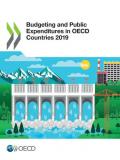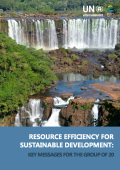


Resource efficiency is a key approach to decoupling economic growth from environmental degradation while enhancing human well-being. It stimulates innovation, the creation of new industries, and boosts economic competitiveness. Ultimately, it is good not only for the environment but also for the economy.
Resource efficiency is both a requirement and an opportunity for sustained economic prosperity in G20 countries - a dynamic group of leading economies with a diverse set of visions and approaches for sustainable development, and member states all over the world. The collective impact of this group could drive large-scale transformation in a direction that can lead us to the achievement of the Sustainable Development Goals.
Northeast Asia Carbon Markets and Trade Connections published by Asia Society Policy Institute (ASPI) in collaboration with ICTSD focuses on carbon pricing and the linking of carbon pricing systems as a potential catalyst for increased trade relationships, and explores how the benefits from linking can be heavily impacted by trade relationships and competitiveness concerns within the economies of China, Japan, and Korea.
The report introduces the different approaches to carbon pricing and linking currently being used by the three countries, explains the benefits and challenges of linking different carbon pricing systems, and proposes ways to deepen integration of carbon pricing and trade policies to promote regional carbon market linkage as well as increase trade between all three countries.
